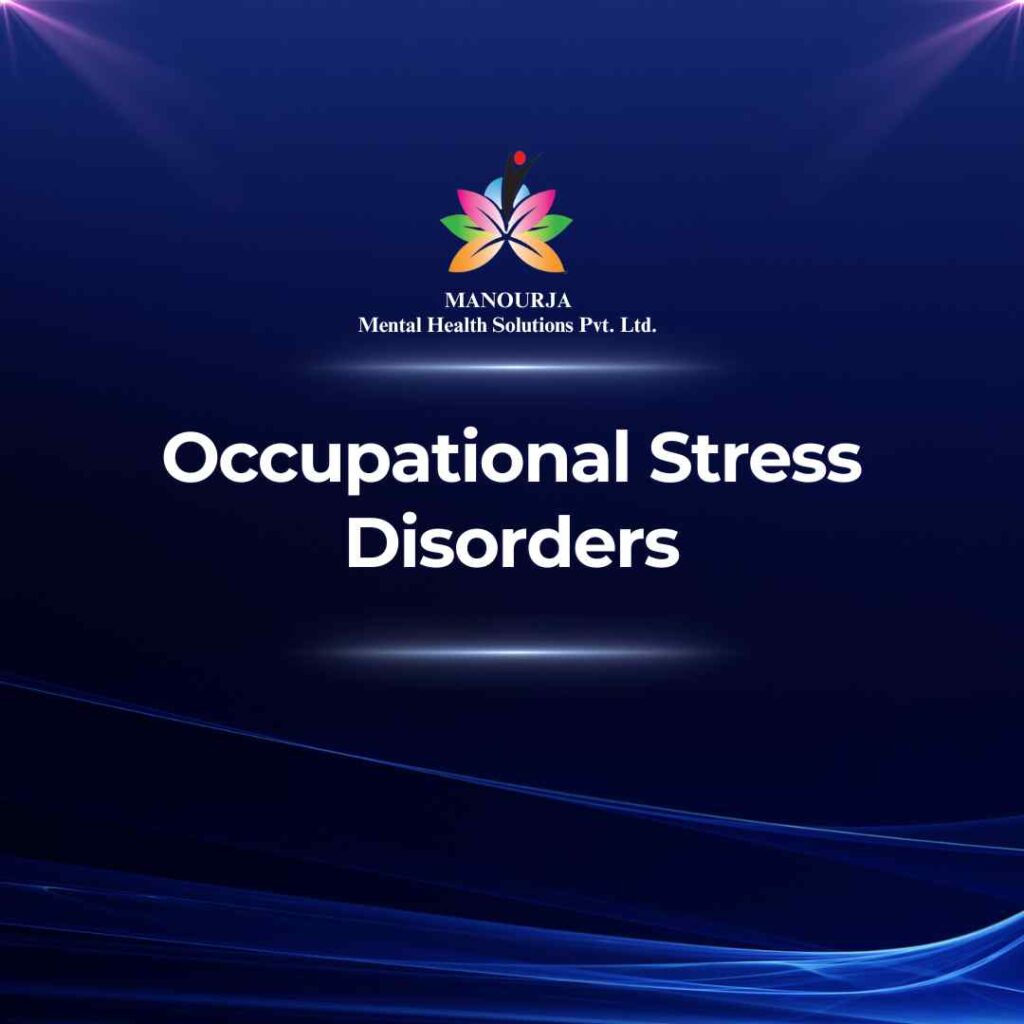Occupational Stress Disorders

Occupational Stress Disorders refer to mental health conditions that arise directly from the stressors encountered in the workplace. The disorders can stem from various sources such as excessive workload, lack of control over work, conflicting demands, lack of support, bullying, harassment, and poor work-life balance. These stressors can lead to significant psychological and physical health issues if not addressed properly.
Symptoms of Occupational Stress Disorders
The symptoms and signs of occupational stress disorders can vary widely but generally include:
Psychological Symptoms
- Anxiety, depression, irritability, and feelings of being overwhelmed.
- Decreased enthusiasm and satisfaction regarding work responsibilities, which may lead to burnout.
- Feelings of helplessness and a lack of accomplishment.
Physical Symptoms
- Fatigue, headaches, muscle tension, and gastrointestinal problems.
- Changes in appetite and sleep disturbances.
- Increased vulnerability to illnesses due to a weakened immune system.
Behavioral Symptoms
- Increased absenteeism and escapism behaviors, such as excessive smoking or alcohol consumption.
- Reduced efficiency at work, procrastination, and a decrease in productivity.
- Conflict with coworkers or supervisors and withdrawal from work-related social interactions.
Forms of Occupational Stress Disorders
While occupational stress itself is not classified into specific disorders in most medical literature, it can contribute to or exacerbate several well-defined conditions, such as:
- Burnout Syndrome: Characterized by emotional exhaustion, cynicism, and feelings of reduced professional efficacy.
- Adjustment Disorders: Triggered by work-related changes or stressors that cause significant emotional or behavioral symptoms.
- Anxiety Disorders: May include generalized anxiety disorder or panic attacks induced by work stress.
- Depressive Disorders: Work-related stress can trigger episodes of major depression, particularly in individuals predisposed to mood disorders.
Treatment of Occupational Stress Disorders
Effective management and treatment of occupational stress disorders involve a combination of organizational changes and individual interventions:
Organizational Interventions
- Implementing work policies that promote a healthy work-life balance.
- Reducing job strain by clarifying job roles, sharing decision-making, and ensuring a manageable workload.
- Creating a supportive work environment that includes opportunities for team building and conflict resolution training.
- Providing resources for career development and growth to increase job satisfaction and engagement.
Individual Interventions
- Cognitive Behavioral Therapy (CBT): Helps individuals manage stress by changing negative patterns of thought about work, which can improve handling of work-related stressors.
- Stress Management Training: Techniques such as mindfulness, relaxation exercises, and resilience training can help individuals cope more effectively with stress.
- Lifestyle Modifications: Encouraging regular exercise, a healthy diet, adequate sleep, and mindfulness practices can greatly improve physical and mental health.
Healthcare Provider Support
- Regular consultations with healthcare providers for stress management, counseling, or therapy.
- Medication might be prescribed when symptoms are severe and interfere significantly with daily functioning, such as antidepressants or anxiolytics.
Employee Assistance Programs (EAPs)
- Many organizations offer EAPs that provide confidential psychological counseling and support services to employees dealing with personal or work-related issues.
Addressing occupational stress requires a proactive approach from both employers and employees. Employers should strive to create an environment that minimizes stressors and supports employees’ well-being, while employees should seek to develop robust coping strategies and maintain healthy boundaries between work and personal life.
At MANOURJA, we believe in the transformative power of counseling. Our experienced therapists offer a safe and supportive space where you can explore your thoughts, emotions, and challenges. Through personalized counselling sessions, we’ll work together to develop coping strategies, build resilience, and achieve lasting positive change. Discover the path to a healthier, happier you with MANOURJA counselling services.
MANOURJA Rehabilitation Services
At MANOURJA, we’re dedicated to helping you in rebuild your life, after difficult times. Our rehabilitation services focus on understanding what you need to move forward, whether you’re recovering from addiction, trauma, or any psychological – social challenges. We create personalized plans, that are all about helping you, regain your strength and find hope again. With a caring team by your side, you’ll have the support to make real progress and take steps toward a brighter, healthier future.
